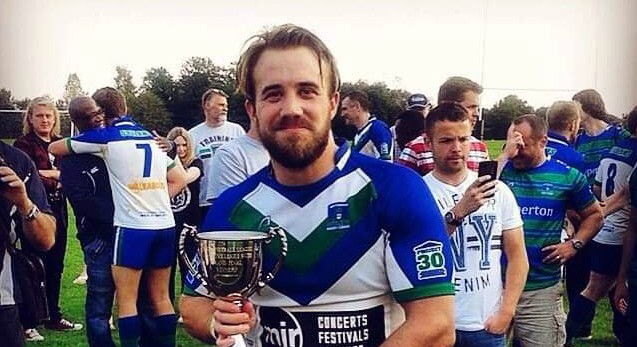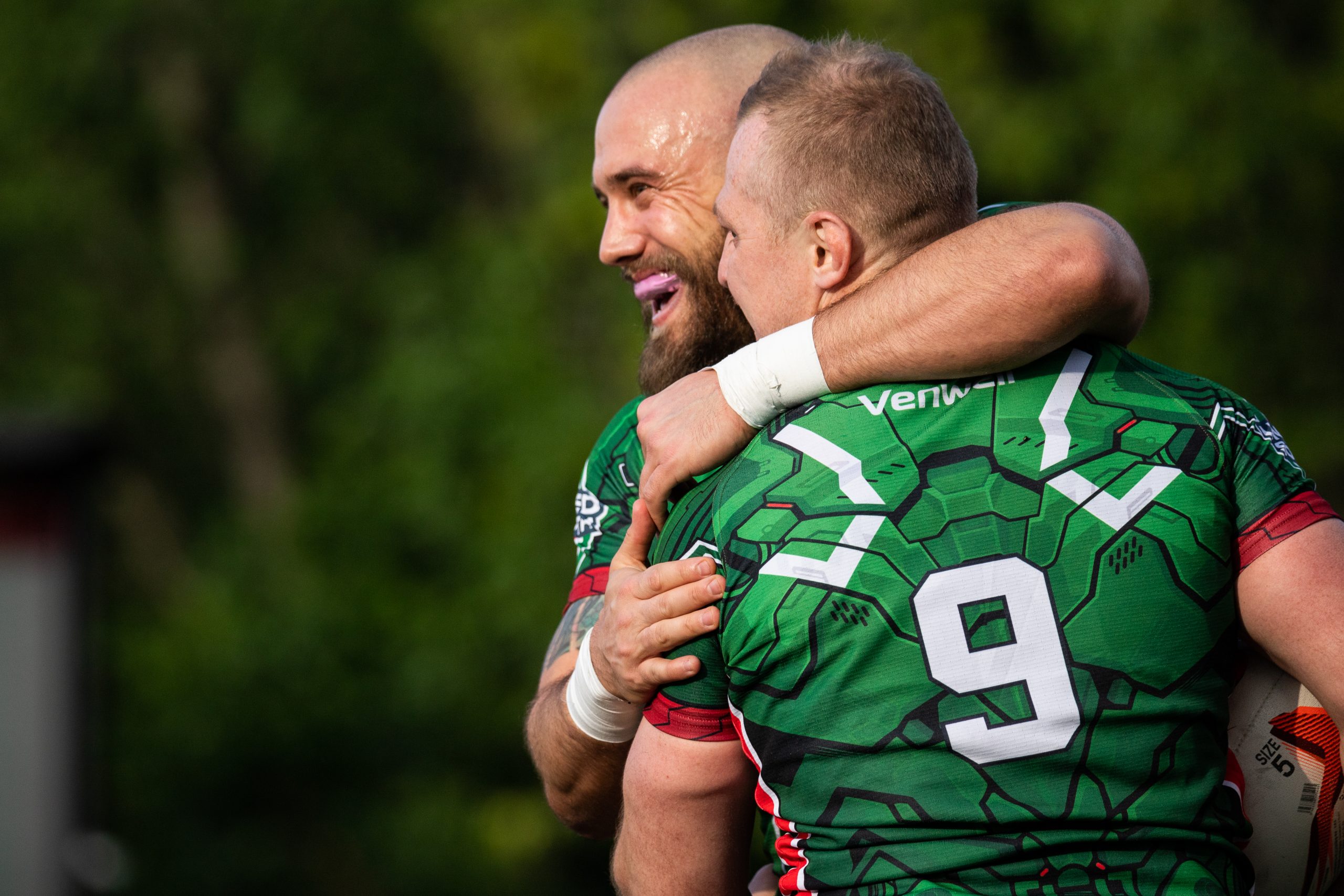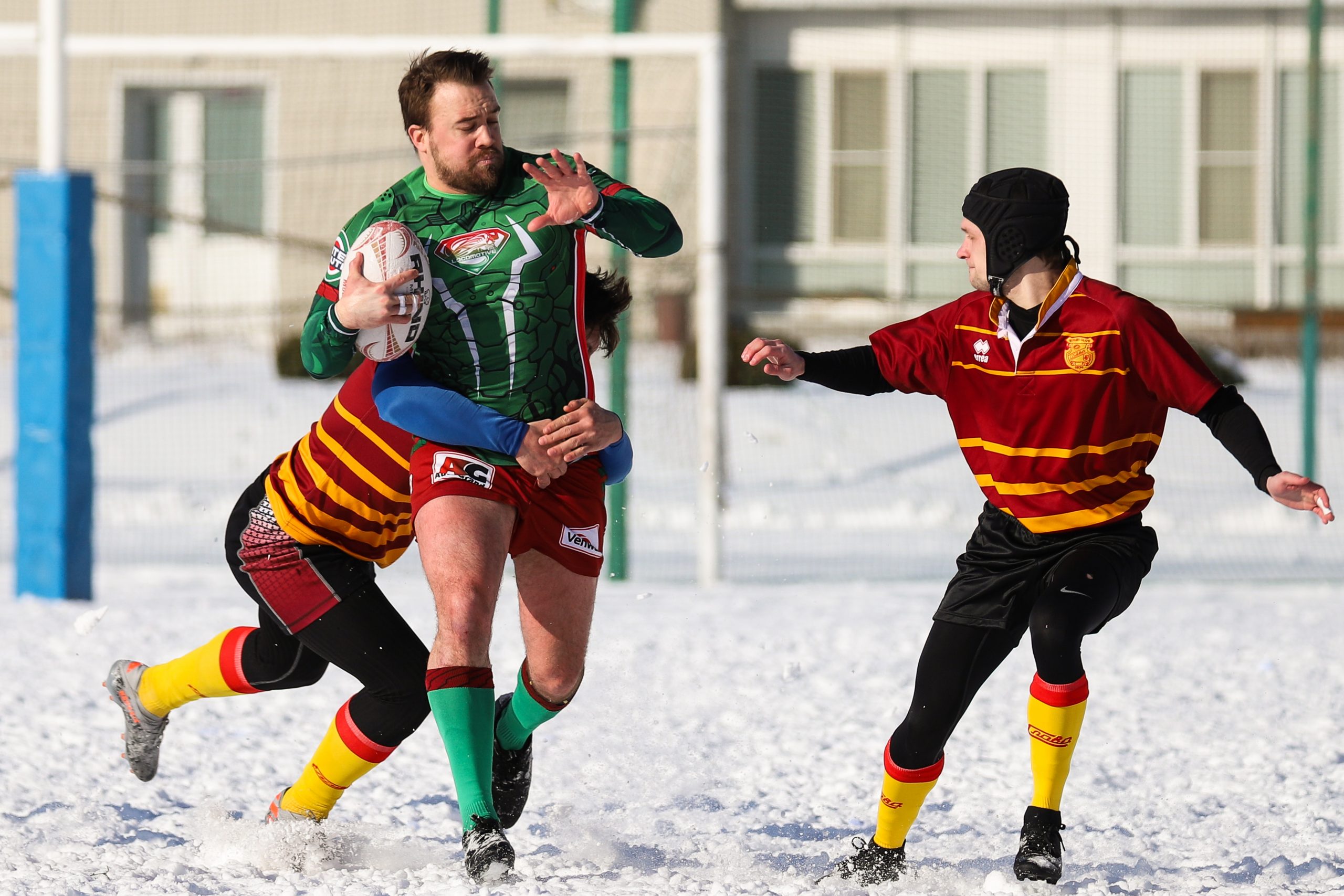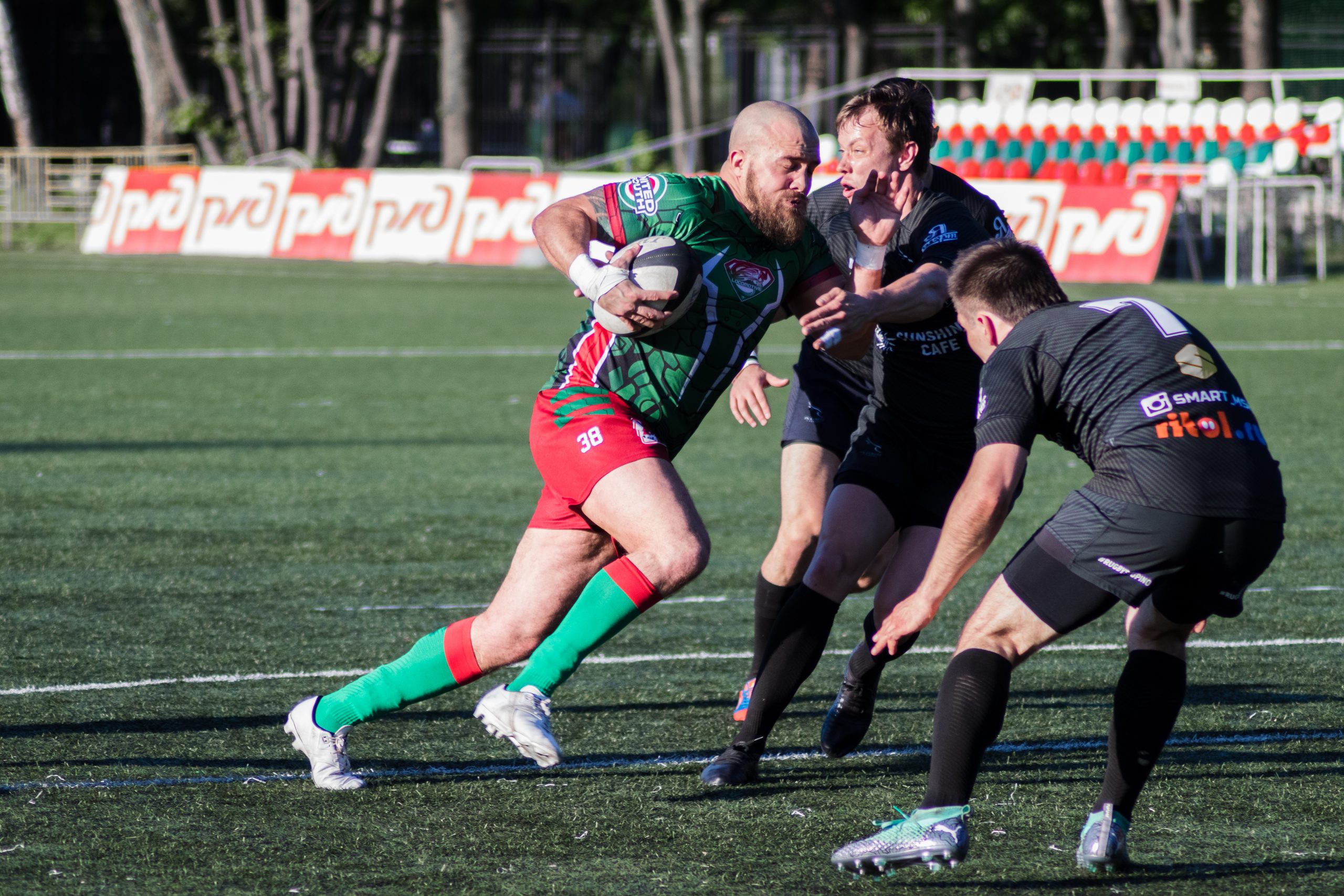The word ‘revolution’ means a lot in Russia and, as history can so easily highlight, it has to start from the bottom.
That’s where the newly elected Russian Rugby League committee have found themselves, tasked with a complete rebuilding process after years of turmoil has all but obliterated the existence of the sport in Russia.
Among the six-man board who had a meeting in February to discuss that development, under the stewardship of Central & Eastern Europe Regional Director Jovan Vujosevic, was Jon Christie – a former Nottingham Outlaws player who currently works as a primary school teacher at the British International School in Moscow.
He joined the board in January and, since then, has given the new Federation a fresh and active voice outside of Russia to spread the message. That message, despite not being able to fluently speak Russian, was clearly translated to Christie.
Christie during his time with Nottingham Outlaws.
“I’d assumed that Rugby League would be what it was here,” the current Lokomotiv Moscow player told Total Rugby League. “Whenever it was on, it was on, and that was that.”
“After the meeting, however, the plan is to get a domestic competition started for when this season resumes, with four Moscow teams. After we’ve started that, we want that to be the Moscow province for a bigger Russian league, with regional conferences.
“We’re trying to get a model working that we can mirror in other parts of Russia. After the Moscow league is running effectively, we want to get a couple of Nines tournaments with the other teams from around Russia to keep them interested and showcase our product.
“We didn’t want to go down the route of having a league that’s widespread and not sustainable. Russia is just so big, as a country, you can spend 12 hours on a train and still be in Russia. The big travel should really be more for a Grand Final than it should be for a regular league game.”
Lessons have clearly been learned from several attempts to establish Russia as a formidable Rugby League playing nation. The history has so many chapters that range from flying success to extinction. The crash-course timeline below does little justice to the hardship the Federation have already had to overcome.
After riding the wave of many Touring teams from the UK to the USSR in the 1990s, they reached a pinnacle in the early noughties, as Russia featured at the 2000 World Cup, losing to Australia by a record 110-4 margin and entered teams into the Challenge Cup for the three seasons thereafter. In 2002, a 54-10 win over the USA, at Luzhniki Stadium, saw over 30,000 attend as Russia continued their unprecedented surge.
By 2007, Tim Sheens was acting as consultant to the national side and even took Russia vice-captain and current board member Roman Ovchinnikov on a trial to Wests Tigers, as Russia continued to offer promise. However, a collapse in 2010 saw the Ministry of Sport exclude Rugby League from the state register of sports.
Christie celebrates for Lokomotiv Moscow
Their top sides moved to rugby union, after government pressure to perform on the Olympic Sevens circuit, with a breakaway group forming without clear direction and competition framework. Attempts were made to rejuvenate the sport in 2014, with an aggressive strategy, but the Ministry of Sport subsequently banned Rugby League.
That governmental pressure resulted in Russia having to withdraw from the qualification stages of the 2021 World Cup, with Eastern Europe’s flagship nation Serbia filling the void. Their Red Star model has created a blueprint for success on the Eastern front, with Russia hoping to replicate their success.
With a strong link to their footballing namesakes, Red Star have been able to build from an already established sporting brand. Russia have that luxury too, with Spartak and Lokomotiv Moscow being part of the four-team competition, alongside Olimpus and Vereya.
Fellow football powerhouses Dinamo and CSKA Moscow have led the way in Rugby League, as well, with the latter being Christie’s first club upon his arrival in Russia. Since then, he has observed a seismic shift in the incorporation of Rugby League sides in their sporting model – something the new Federation hope to utilise to ensure their next chapter isn’t etched into a history of crises.
“When I was at CSKA, three years ago, they started take a more professional approach,” Christie explained. “This approach is now mirrored across a lot of the clubs. At Lokomotiv, we have a professional football team in our banner, as well and have a good relationship with them.”
“We train at their facilities now and there’s a two-sided stadium with a 500-capacity we play our home games at and we do indoor training by the football stadium. In terms of facilities now, teams like Lokomotiv and Spartak Moscow have got the infrastructure now. In the last three years, the football teams are getting more involved.
“We want to have a presence in the Balkan region, eventually, we were due to play a nines tournament in Serbia with Red Star and Partizan Belgrade and Lokomotiv and Spartak Moscow, in March.
Christie battles typical Russian terrains in a league fixture
“A strong Russia is only going to benefit Serbia, and vice versa, the European club concept one that eventually we’d look to be part of, but it’s about the domestic competition first.”
“We look at how Serbia are doing things and promoting themselves and we’re looking at streaming games in English, like they have, and potentially looking at getting that on the OurLeague App.”
That microphone will no doubt fall to Christie, on that front, as he has already embarked on a remarkable journey of his own in the sport. After finding the sport at a Leicester University’s Freshers’ Fair, the growing passion for the game never escaped him while teaching in such exotic destinations as China, Myanmar and Bradford, West Yorkshire.
Featuring for the Nottingham Outlaws, his hometown team, opened his eyes to the often nomadic nature of Rugby League, as the club have ranged from participation in the Conference League South to the Yorkshire Men’s League. That was after coming back a torn ligament in his third year at University,
Ask Christie where his sporting allegiances would lie, as a child, and it would have still been in Nottingham but not Rugby League, with a family connection to the cities two footballing sides. The Outlaws were to be his side, however, after university in Leicester began his path to becoming a Rugby League board member in Russia.
“It’s mad how much I’ve fallen in love with the game,” he explained. “I literally never really watched it as a kid. My dad, Trevor Christie, played for Leicester City, Nottingham Forest, Derby County, Manchester City and Notts County so I grew up with football.
Christie drives forward for Lokomotiv
“He was signed by Brian Clough at Forest, actually, he was your typical target man. He’s got plenty of stories to tell about him, believe me, but he was probably most successful at their rivals Notts County.
“I used to watch him a kid and then I eventually found Rugby League at university, but I didn’t really bother with it again, even in Bradford, until I got to China.
“I started watching the NRL over in China, really randomly. The boys would go and watch Six Nations and I’d just watch the NRL instead. When I moved back to England, I realised how much I loved it at university. I should’ve carried on sooner, really. From that point, I really did turn into a Rugby League tragic.
“When I came back to Nottingham I joined Nottingham Outlaws and we played in the Challenge Cup and beat Valley Cougars in the Grand Final of the Conference League South.
“I look at what the Outlaws have done and I’m using it as inspiration with Russia, I went back to play one game for them last Summer and they’ve had to start from scratch a number of times but now they have their own ground and are established in the region. That’s what we’ve got to aim to do now.
https://www.totalrl.com/the-russian-revolution/



